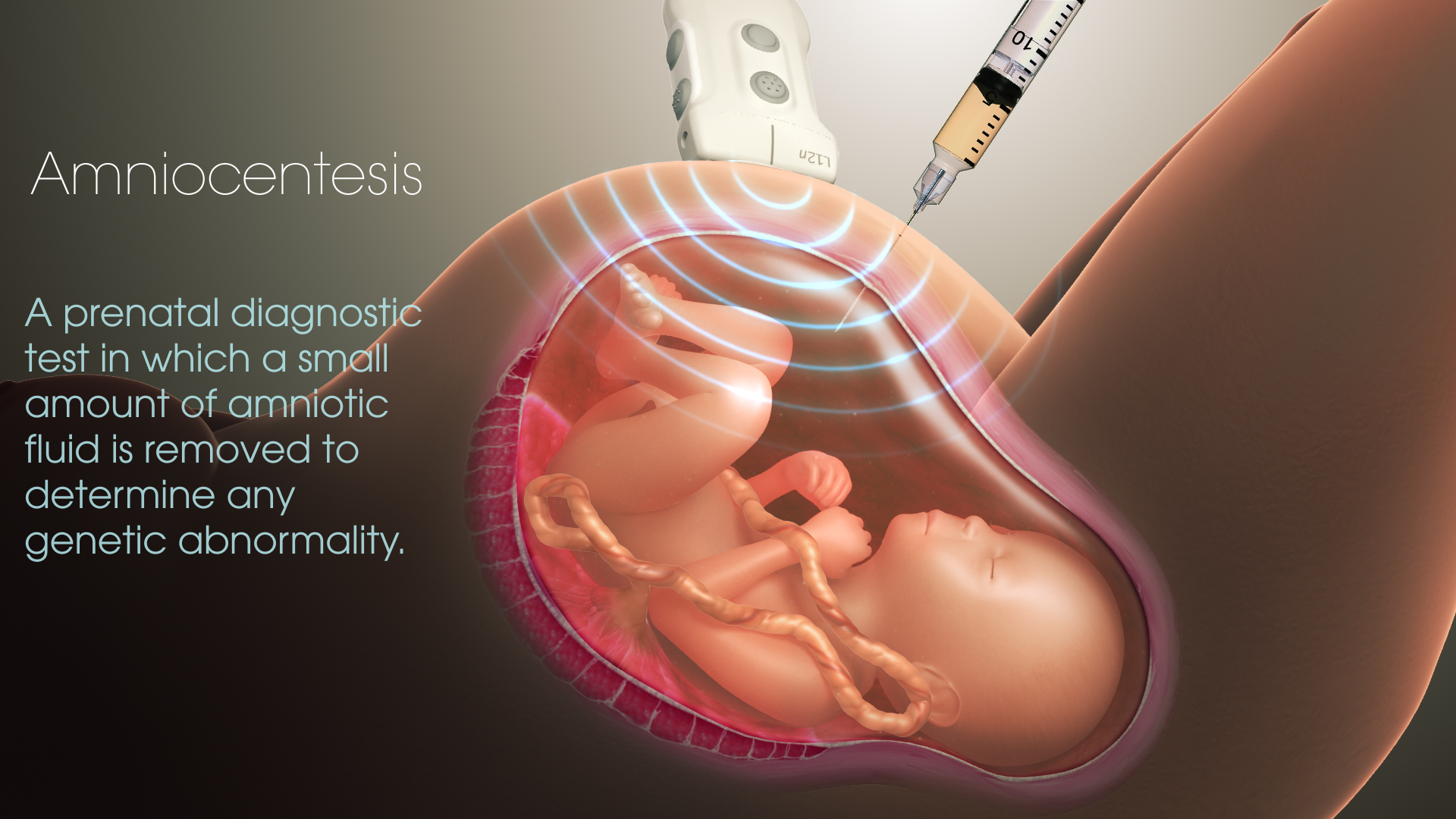Amniocentesis or "puncture of the amnion," refers to the process of aspirating an ounce of amniotic fluid that surrounds the fetus in the mother’s womb. The amnion is a thin-walled sac of fluid in which a developing fetus is suspended during pregnancy. The function of the fluid is to protect the unborn baby while it is in its developmental stages. Consequently, the amniotic fluid contains the baby’s cells which can be tested to check for any suspected abnormality.

During the sampling procedure, the obstetrician inserts a very fine needle through the woman's abdomen into the uterus and amniotic sac and withdraws approximately 30cc of amniotic fluid for testing. The physician uses ultrasound images to guide needle placement and collect the sample, thereby minimizing the risk of fetal injury or the need for repeated needle insertions. The relatively painless procedure is performed on an outpatient basis, sometimes using local anesthesia.
Depending on the reason for which it is performed, an amniocentesis is usually of the following types:
Genetic amniocentesis
This type of testing concentrates on your baby’s genetic makeup. Usually, doctors suggest a genetic amniocentesis when a patient has received abnormal results from a prenatal screening (to confirm or rule out a diagnosis), has a family history of any genetic disease or a neural tube defect, or if its a first baby conceived by a woman of 35 years or older.
Amniocentesis has long been employed as a routine test for Down syndrome. The procedure was later used to test other genetic disorders such as Tay-Sachs disease, sickle cell anemia, hemophilia, muscular dystrophy, cystic fibrosis, spina bifida, etc in the fetus.
Maturity amniocentesis
This type of procedure indicates if the baby is physically ready to be born – particularly in terms of lung development. If preterm labor is an issue, it is crucial to confirm whether the baby’s lungs are strong enough for birth.
- Other reasons– there are several other reasons for performing amniocentesis:
- Evaluate a baby for infection or other illness
- Decrease the volume of amniotic fluid
- Diagnose a uterine infection
- Evaluate the severity of anemia in babies who have Rh disease — an uncommon condition in which a mother's immune system produces antibodies against a specific protein on the surface of the baby's blood cells
Patients must weigh the value of an amniocentesis versus the risk. For those who need to know and prepare for what conditions their baby may have the importance of the test is paramount. The same is true for those who subject themselves to a maturity amniocentesis, especially if the patient is threatened with preterm labor. Amniocentesis carries a small but real risk of complications, including:
Associated Risks/Complications
- Miscarriage- especially in the second trimester
- Cramping and vaginal bleeding
- Needle injury to fetus
- Leakage of amniotic fluid causing orthopedic problems in the baby
- Rh sensitization
- Occurrence of infection in mother’s uterus
- Transmission of pre-existing infections (eg. hepatitis C) from mother to fetus

Could Evolution Be Against Pregnancy?
There’s a reason human childbirth is an extremely strenuous and intensive process: A human baby’s head is designed to just barely squeeze through a mother’s pelvis. So the primary reason that accounts for most C-section surgeries worldwide is simple Read More..

The Super-organ We’ve Been Neglecting Till Now
Placenta is an under-appreciated and an understudied organ. It is the only organ we grow and discard and grow again.” says the acting director of the National Institute of Child Health and Human Development (NICHD). Read More..








